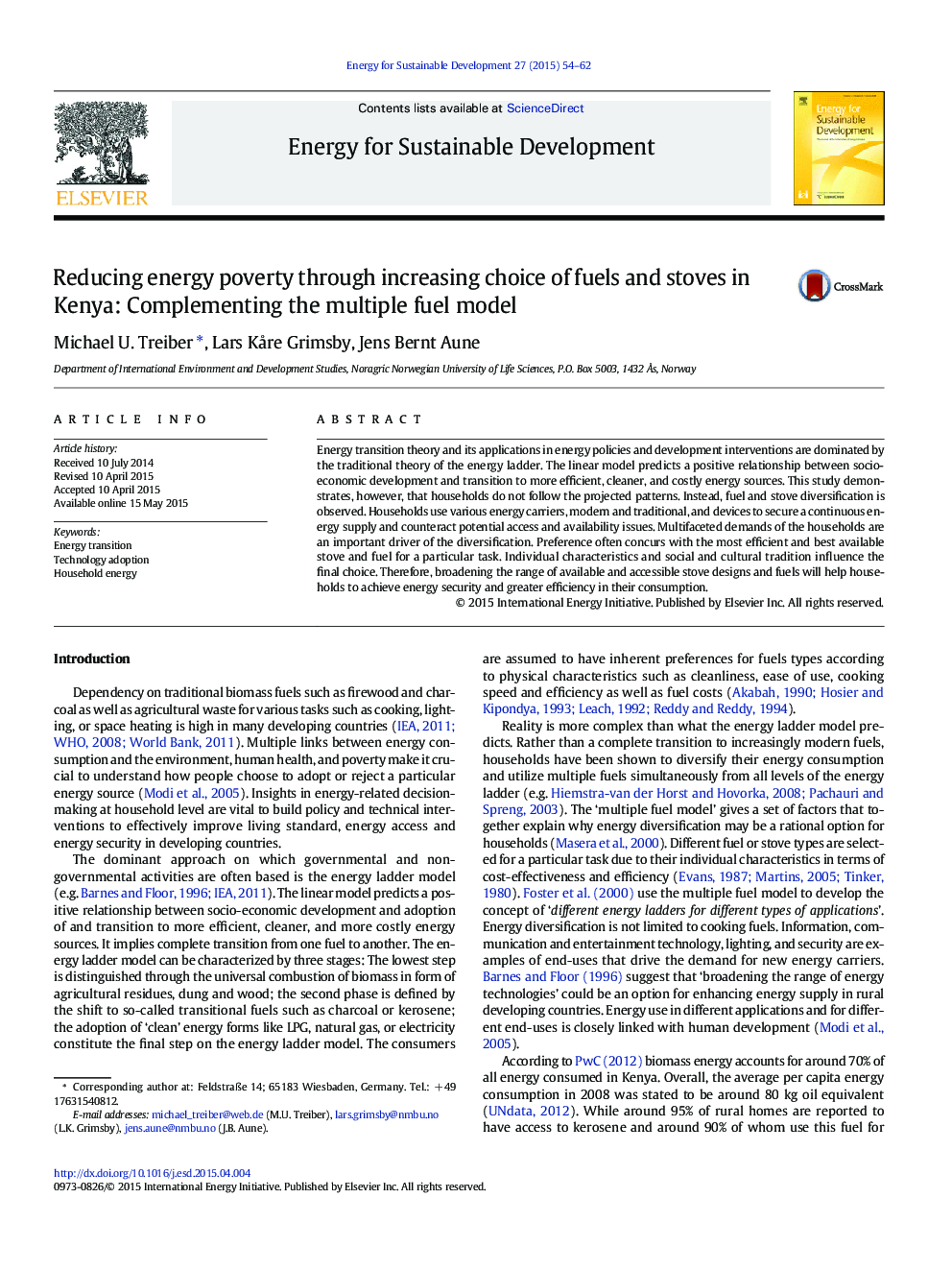| کد مقاله | کد نشریه | سال انتشار | مقاله انگلیسی | نسخه تمام متن |
|---|---|---|---|---|
| 1046871 | 1484403 | 2015 | 9 صفحه PDF | دانلود رایگان |
• Presented model gives guidance for energy and technology interventions.
• Tradition, personality and particular situation and task affect technology choice.
• Households' diverse demands are a major driver for fuel/stove diversification.
• Income affects fuel/stove choice but is offset by improved availability and access.
• Wide range of available and accessible fuels/stoves helps achieving energy security.
Energy transition theory and its applications in energy policies and development interventions are dominated by the traditional theory of the energy ladder. The linear model predicts a positive relationship between socio-economic development and transition to more efficient, cleaner, and costly energy sources. This study demonstrates, however, that households do not follow the projected patterns. Instead, fuel and stove diversification is observed. Households use various energy carriers, modern and traditional, and devices to secure a continuous energy supply and counteract potential access and availability issues. Multifaceted demands of the households are an important driver of the diversification. Preference often concurs with the most efficient and best available stove and fuel for a particular task. Individual characteristics and social and cultural tradition influence the final choice. Therefore, broadening the range of available and accessible stove designs and fuels will help households to achieve energy security and greater efficiency in their consumption.
Journal: Energy for Sustainable Development - Volume 27, August 2015, Pages 54–62
